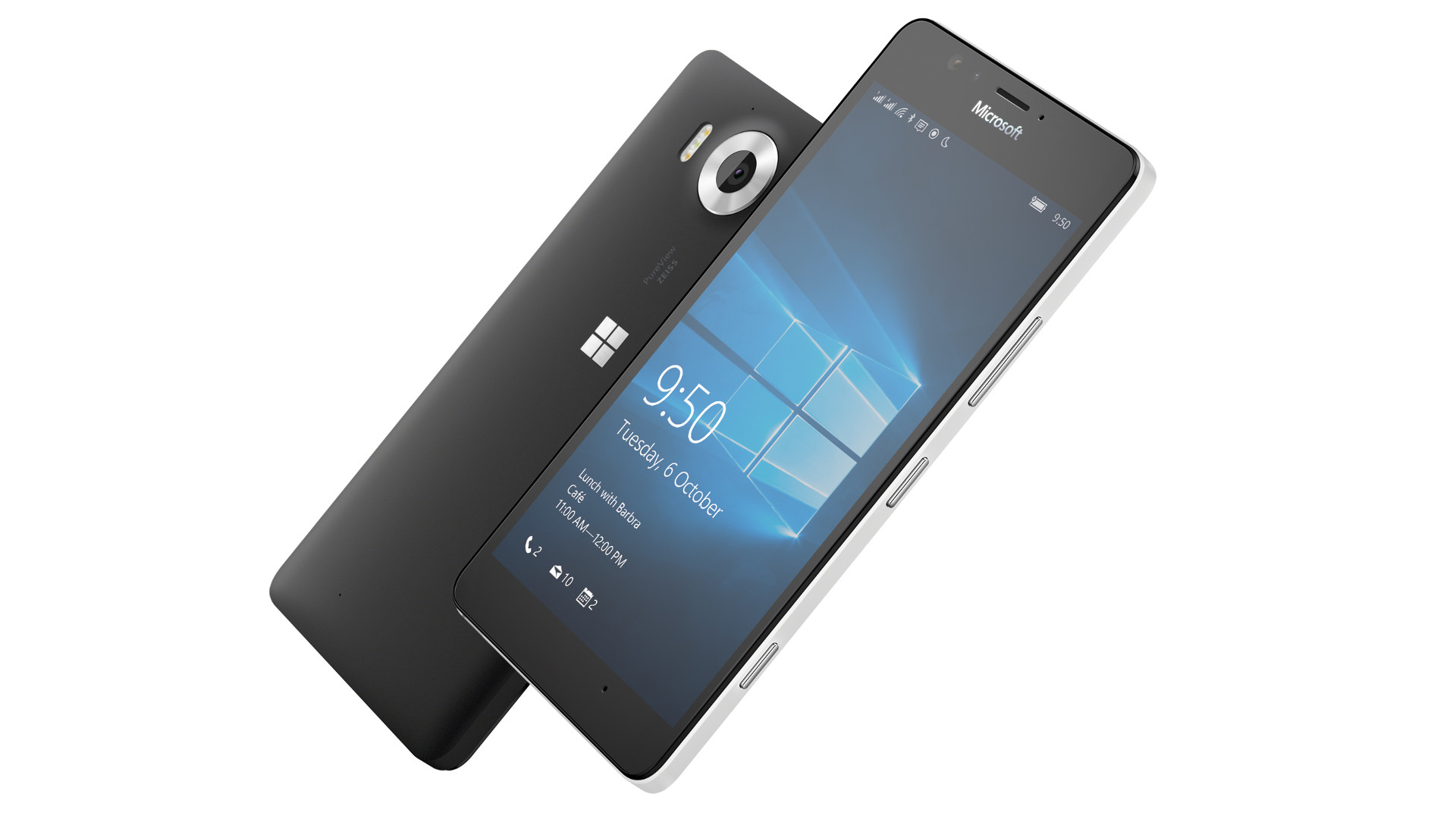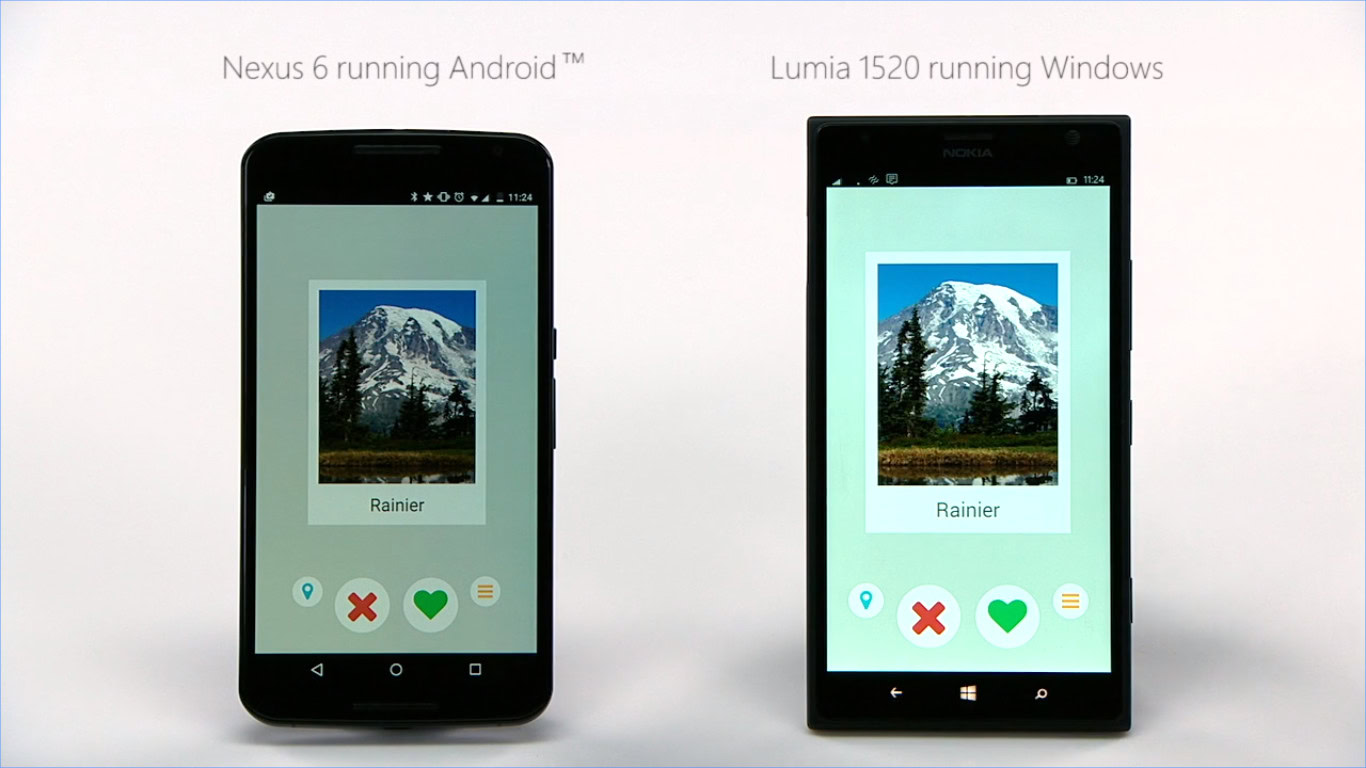Windows Phone Apps Vs Android

The overwhelming bulk of smartphones on the marketplace today are powered by Android or iOS, simply information technology wasn't long agone that Microsoft was in the game with Windows Phone and Windows 10 Mobile.
Windows 10 Mobile was Microsoft's last attempt to proceeds traction with a smartphone operating arrangement. It offered a distinctive Live Tile interface, a desktop mode for external displays, and support for universal Windows apps.
Unfortunately, the Achilles Heel for Microsoft'south latest mobile OS connected to be a lack of apps compared to Android and iOS. This would exist a significant contributing factor to the platform's demise, simply did y'all know that Microsoft was in the avant-garde stages of bringing Android app support to Windows x Mobile?
Project Astoria

Microsoft initially developed multiple software "bridges" for Windows 10 Mobile, with the purpose of helping developers easily port their apps from legacy Windows, iOS, and Android. The first 2 bridges, dubbed Project Islandwood and Projection Centennial and designed for porting iOS and Windows, respectively, actually saw the low-cal of twenty-four hours.
The third bridge, dubbed Projection Astoria, was unfortunately pulled from Windows 10 Mobile alee of its commercial release. However, the Android sub-organization was available on preview builds of the and then-new operating system, giving users an thought of what to wait.
It's one thing to facilitate easier porting of apps from one platform to another, but Projection Astoria and the associated sub-organisation was a niggling more avant-garde. The project actually made it possible for end-users to install Android apps on their phones also. To do and so, you needed to enable developer mode on your phone running the Windows x Mobile preview, install the APK2W10M internal app on your PC, connect your phone to the PC, and and so deploy the desired app.
Preview builds of Windows 10 Mobile allowed you to run Android apps without modifying the APK files.
Granted, this wasn't exactly easy for the boilerplate consumer, simply the fact that APK files worked without modification highlighted merely how far in development these tools were and how lilliputian effort would have been needed to bring Android apps to the stable version of the platform.
I was able to install several apps — such equally Steam and Reddit Sync — on my Lumia 1020 at the time of the Windows 10 Mobile preview program in 2015. But at that place were definitely a ton of apps that didn't run properly, owing to glitches, crashes, or simply the lack of Google Play Services. Still, for a brief moment, it felt like the app gap was close to being narrowed in a big fashion.
Microsoft pulls the plug

Unfortunately for tinkerers and Windows Phone users hoping for more apps, the Redmond giant made the conclusion to pull Projection Astoria from the final Windows 10 Mobile release in late 2015. Microsoft'south reasoning felt a little foreign, even dorsum then.
"We received a lot of feedback that having 2 Bridge technologies to bring code from mobile operating systems to Windows was unnecessary, and the option between them could exist disruptive," the visitor stated in an update explaining Astoria'due south counterfoil. Would developers really feel confused about whether to port the Android version of their app or the iOS version?
Another conventionalities is that Microsoft killed Project Astoria because information technology represented a threat to its Universal Windows Apps initiative and apps taking full advantage of Windows Phone features (e.g. Alive Tiles, Metro UI). Subsequently all, the early Windows 10 Mobile builds containing the Android subsystem were able to run plenty of APK files without any modifications to them.
More on Microsoft: 8 improvements and additions we'd like to run into on the Surface Duo ii
Ars Technica suggested that Microsoft may have been trying to avoid legal troubles by ditching Project Astoria. More than specifically, the outlet noted that Microsoft intended to create its own "workalikes" for Google APIs not included in AOSP. Information technology's suggested that this would've drawn legal scrutiny due to the Oracle/Google trial at the time over Android itself.
Even if Projection Astoria ended up in the last version of Windows 10 Mobile, at that place'southward no guarantee that Android apps alone would've been able to keep the platform alive. The BlackBerry 10 platform boasted back up for Android apps at its 2013 launch. Unfortunately, despite improvements like a runtime based on a newer version of Android and dropping the requirement for APK files to exist converted to BAR files offset, BlackBerry still killed its platform in favor of proper Android in subsequently years.
Projection Astoria's legacy does officially live on though, as a Microsoft engineer confirmed that the Linux subsystem for Windows 10 — which allows you lot to run Linux control-line tools and programs on your PC — was derived from work on the Android to Windows span.
Source: https://www.androidauthority.com/windows-10-mobile-android-apps-1161093/
Posted by: browndowerturs.blogspot.com

0 Response to "Windows Phone Apps Vs Android"
Post a Comment